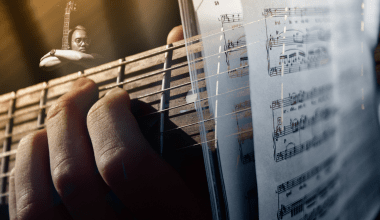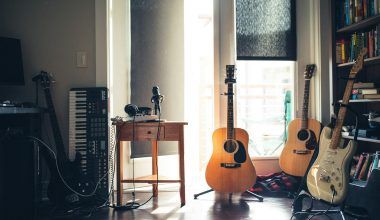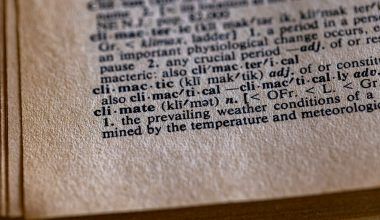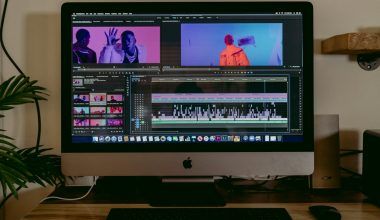Learning a musical instrument can be life-changing. It helps build discipline, boosts creativity, and brings joy. Choosing the right instrument for beginners is crucial to make the process enjoyable and fulfilling. Whether you’re starting young, as a teen, or as an adult, there’s an instrument out there for you.
This guide will walk you through the best options, tips on choosing the right one, and advice on how to get started. By the end, you’ll have everything you need to embark on your musical journey.
Why Learning an Instrument Matters
Before we dive into the best instruments for beginners, let’s discuss why learning music is important:
- Enhances Brain Function
Playing an instrument improves memory, focus, and problem-solving skills. - Encourages Discipline
Regular practice builds consistency and perseverance. - Boosts Confidence
Mastering a song or technique gives a sense of accomplishment. - Promotes Emotional Expression
Music allows you to channel your feelings creatively.
Whether you’re looking to relax or develop a new skill, learning an instrument is a rewarding experience.
How to Choose the Right Instrument for Beginners
Selecting your first instrument can be overwhelming. Here are some factors to consider:
- Personal Interest: Choose something you’re excited about.
- Physical Comfort: Make sure the instrument suits your size and strength.
- Budget: Look for affordable options that don’t compromise quality.
- Learning Curve: Some instruments are easier to start with than others.
Let’s explore the best instruments for beginners in different categories.
String Instruments for Beginners
String instruments are versatile and widely loved. Here are a few beginner-friendly options:
1. Guitar
- Why It’s Great: Guitars are affordable, portable, and easy to learn basic chords.
- Best For: Teens and adults interested in pop, rock, or acoustic music.
- Starter Tip: Learn three to five chords to play your favorite songs quickly.
2. Ukulele
- Why It’s Great: Smaller than a guitar, with soft nylon strings that are easy on fingers.
- Best For: Kids or anyone seeking a cheerful, lightweight instrument.
- Starter Tip: Start with simple songs like “You Are My Sunshine.”
3. Violin
- Why It’s Great: Compact and excellent for classical or folk music.
- Best For: Those with patience and a love for orchestral sounds.
- Starter Tip: Invest in beginner tutorials or a teacher for correct posture and technique.
Percussion Instruments for Beginners
Percussion instruments are perfect for those who love rhythm.
1. Drum Kit
- Why It’s Great: Fun and engaging, great for coordination.
- Best For: Aspiring rock or jazz musicians.
- Starter Tip: Start with a basic electronic drum pad to practice rhythms quietly.
2. Cajón
- Why It’s Great: Portable box drum with simple hand patterns.
- Best For: Beginners interested in Latin or acoustic styles.
- Starter Tip: Learn basic beats to accompany acoustic performances.
3. Tambourine
- Why It’s Great: Simple to play, adds sparkle to any song.
- Best For: Kids or hobbyists.
- Starter Tip: Practice shaking and tapping in time with music.
Keyboard Instruments for Beginners
Keyboards are an excellent way to learn music theory while playing melodies.
1. Piano
- Why It’s Great: Offers a strong foundation in music and versatile styles.
- Best For: All ages.
- Starter Tip: Begin with simple melodies and learn basic chords.
2. Electronic Keyboard
- Why It’s Great: Affordable, portable, and comes with pre-recorded sounds.
- Best For: Beginners on a budget.
- Starter Tip: Use online tutorials to practice finger exercises and scales.
3. Melodica
- Why It’s Great: Combines a keyboard with a wind element for a unique sound.
- Best For: Those wanting something portable and quirky.
- Starter Tip: Practice scales to get comfortable with the keys and breath control.
Wind Instruments for Beginners
Wind instruments offer a wide range of tones and playing experiences.
1. Recorder
- Why It’s Great: Easy to hold and play simple melodies.
- Best For: Young beginners in schools or home learning.
- Starter Tip: Learn basic finger placements and blow gently for a clear tone.
2. Harmonica
- Why It’s Great: Small, affordable, and versatile for blues or folk music.
- Best For: Adults and teens who enjoy soulful sounds.
- Starter Tip: Start with a diatonic harmonica in the key of C.
3. Clarinet
- Why It’s Great: Produces a rich, warm tone.
- Best For: Those interested in classical or jazz.
- Starter Tip: Focus on proper breathing and finger techniques.
Electronic Instruments for Beginners
Technology has opened new doors for learning music:
1. Digital Drum Pads
- Why It’s Great: Compact, fun, and perfect for rhythm practice.
- Best For: Beginners who love beats.
- Starter Tip: Play along with your favorite songs to develop timing.
2. MIDI Keyboard
- Why It’s Great: Connects to computers for endless sound possibilities.
- Best For: Aspiring producers or composers.
- Starter Tip: Experiment with free music software to create simple tracks.
3. Synthesizer
- Why It’s Great: Allows for creative sound manipulation.
- Best For: Beginners interested in electronic music.
- Starter Tip: Learn basic waveforms and effects to shape your sound.
Tips for Learning Instruments for Beginners
- Set Realistic Goals: Start small and build up gradually.
- Practice Regularly: Consistency is more important than long practice sessions.
- Stay Patient: Progress takes time, but every effort counts.
- Find a Teacher or Community: Support from others makes learning easier and more fun.
- Enjoy the Process: Celebrate small victories and keep it fun.
Conclusion:
Choosing the right instrument for beginners is the first step toward a rewarding musical journey. Whether it’s a guitar, piano, or drum, every instrument offers unique experiences and challenges.
Explore your interests, set your goals, and dive into the world of music. With the right instrument and a little dedication, you’ll discover a new way to express yourself and connect with the world.
Related Articles:
For further reading, explore these related articles:
- Discover the Best Cheap Musical Instruments for Beginners
- Mini Musical Instruments: A Comprehensive Guide to Tiny Tunes
For additional resources on music marketing and distribution, visit Deliver My Tune.






